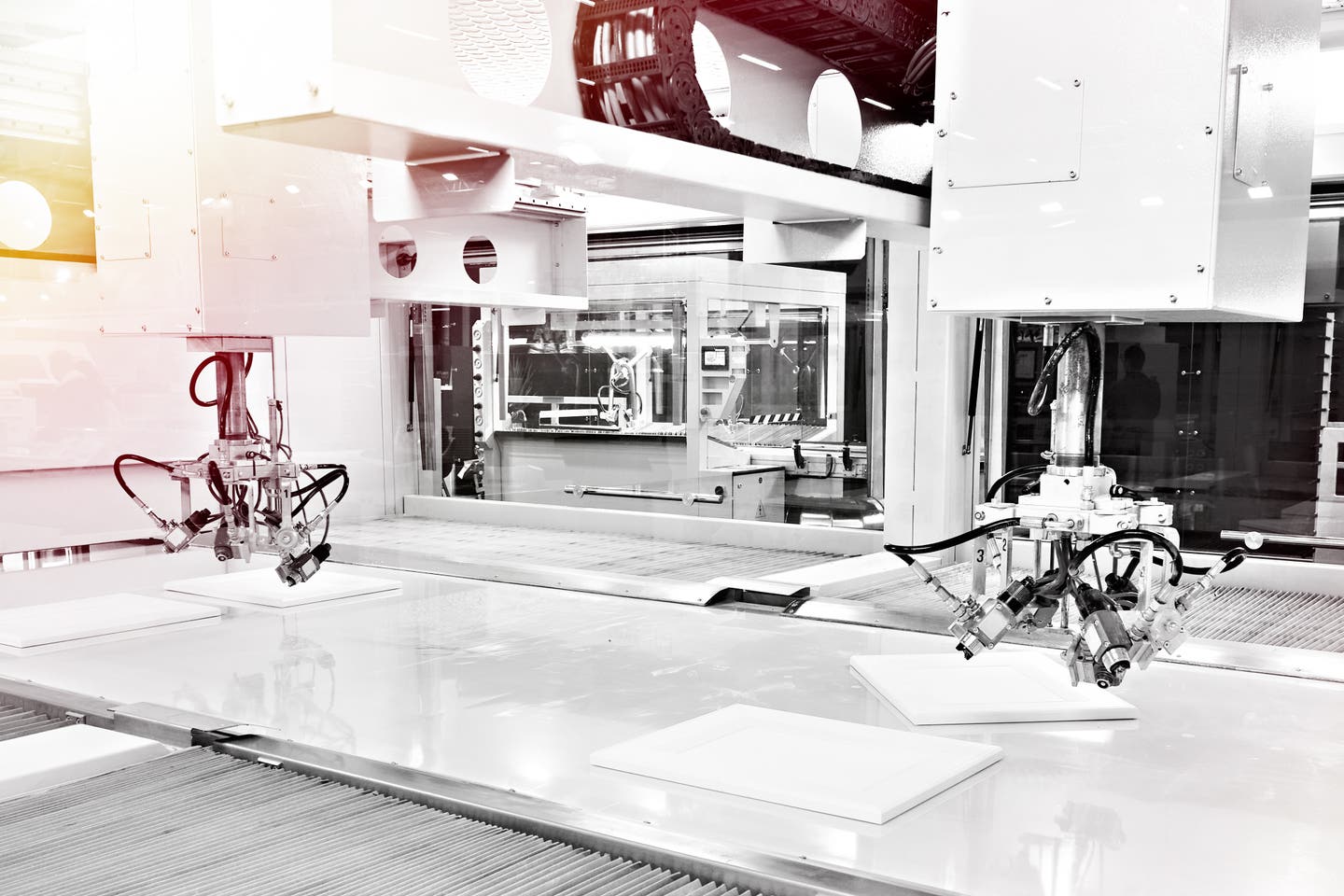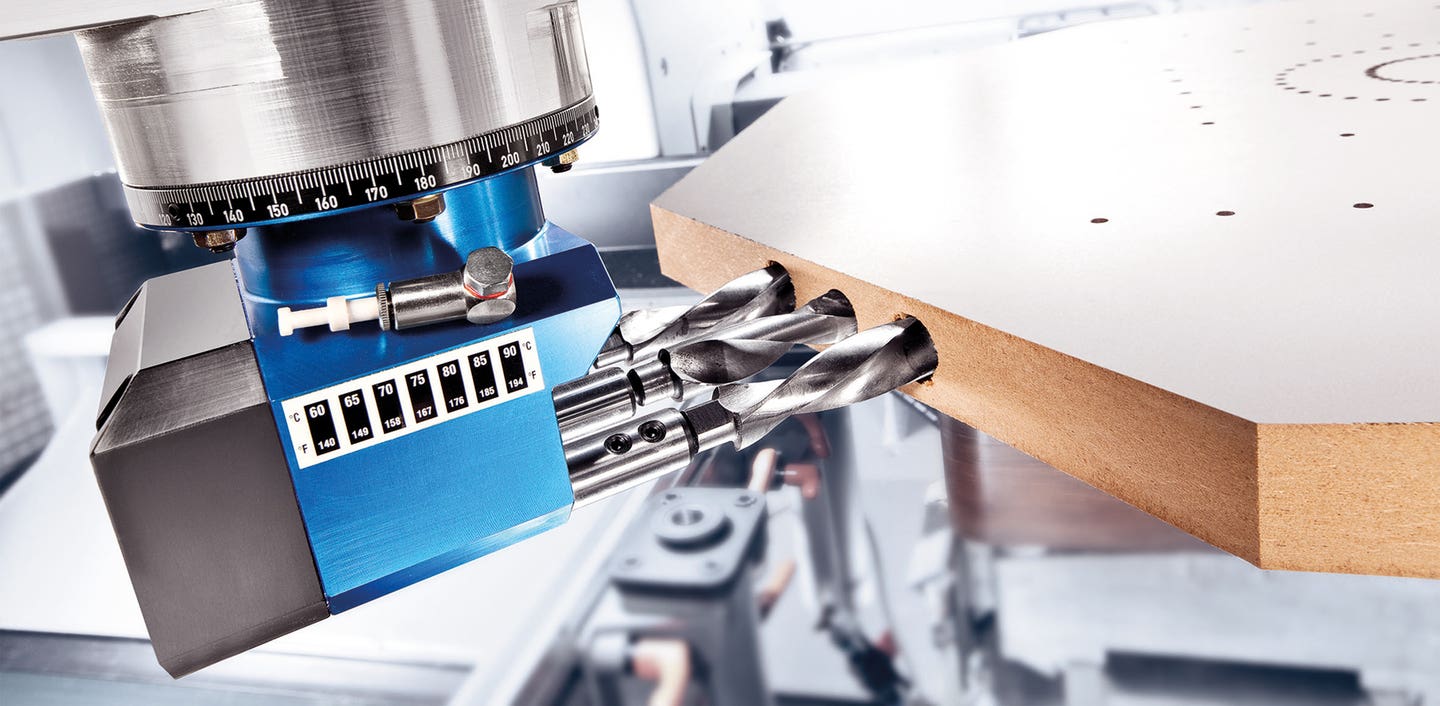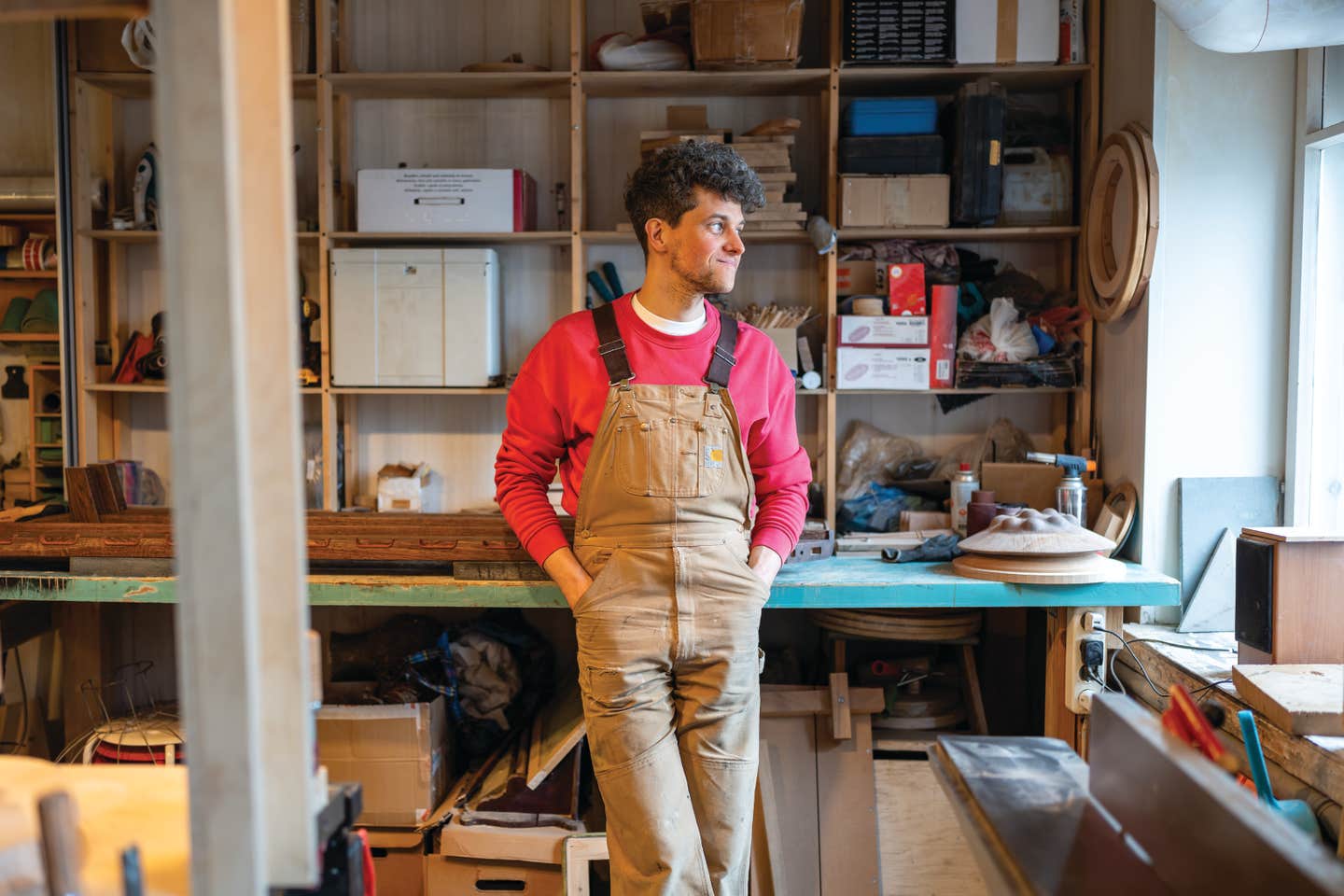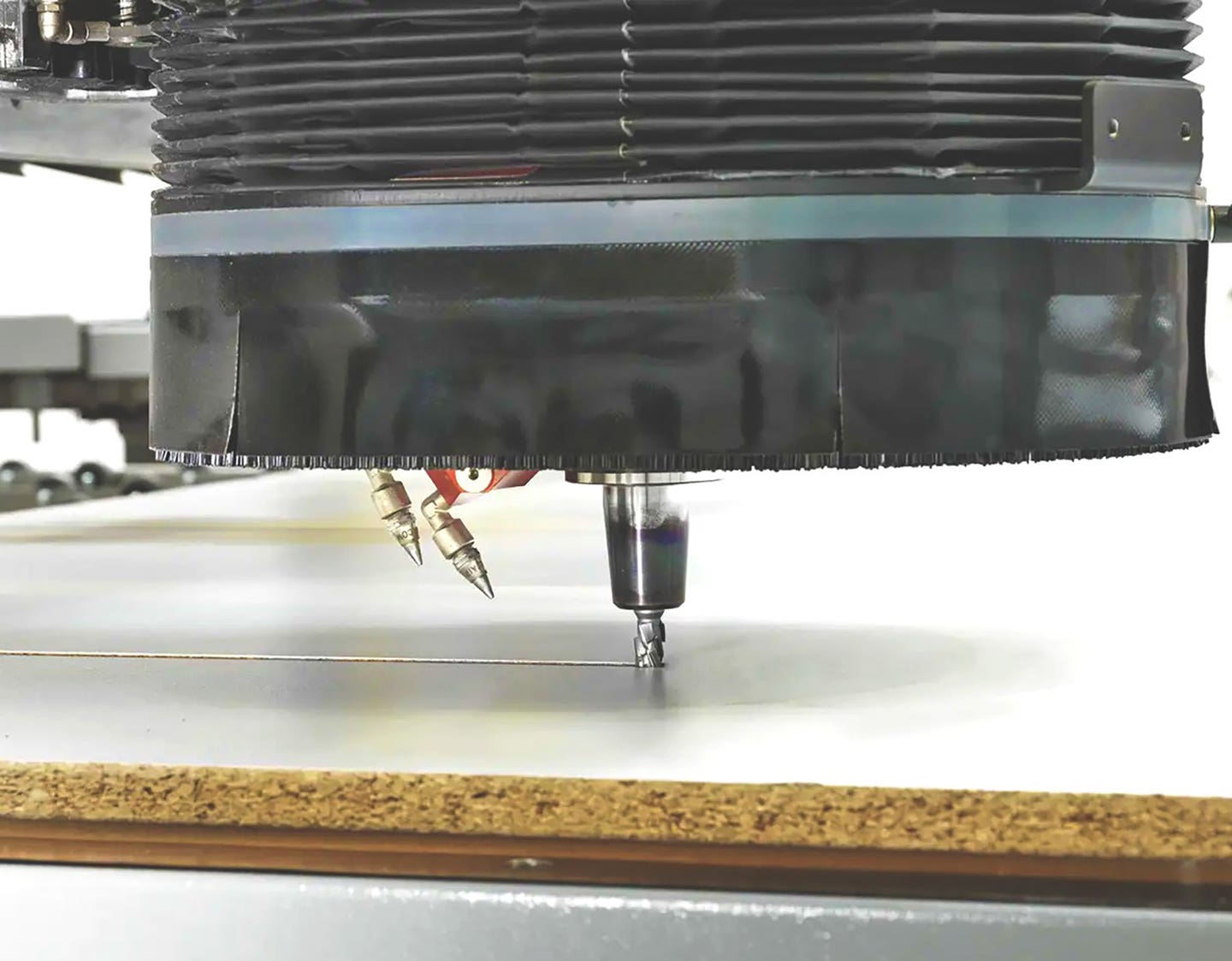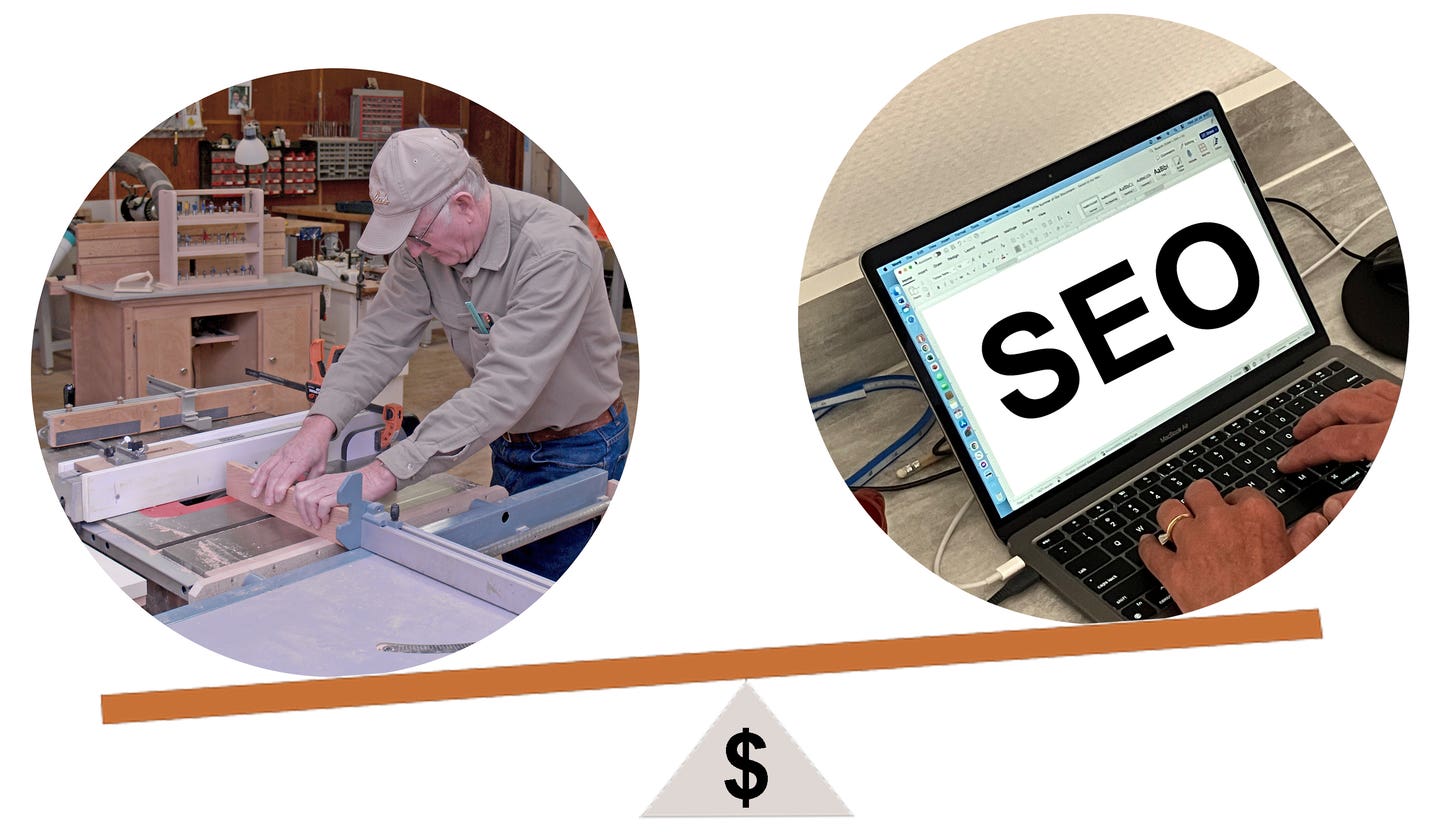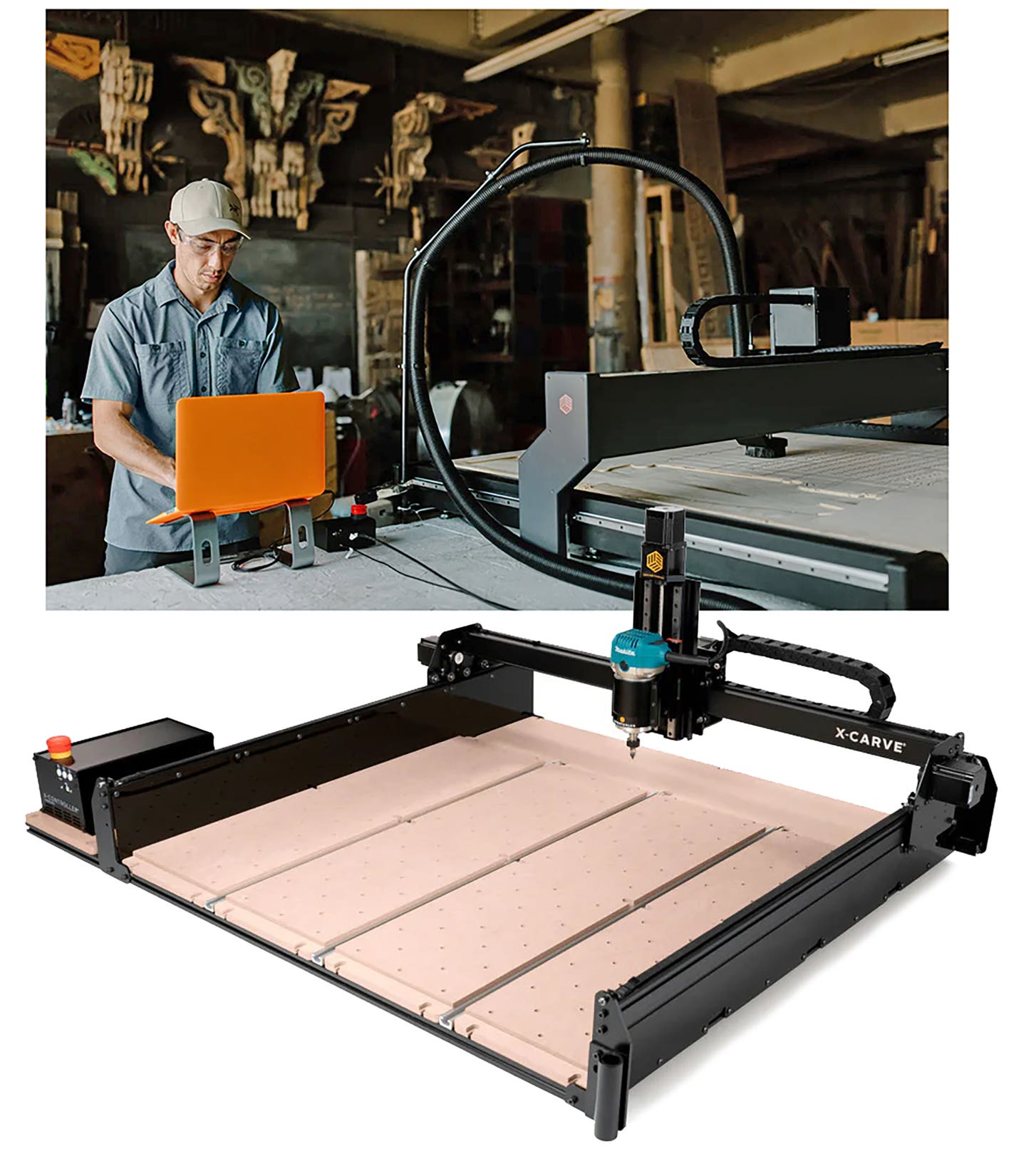The strength of being small
Having designed and built hundreds of pieces of furniture, Bill Huston has developed an innate sense of proportion and dimension that runs throughout his work. A seasoned woodworker with 35…
Having designed and built hundreds of pieces of furniture, Bill Huston has developed an innate sense of proportion and dimension that runs throughout his work. A seasoned woodworker with 35 years of experience, Huston left Thos. Moser Cabinetmakers to start Huston and Co. and recently celebrated the shop’s 20th anniversary in Kennebunkport, Maine.
During the last two decades, Huston and Co. has catered to a wide range of customers, primarily in the New England region. Projects range in scope from a single coffee table or bedroom set for residential clients, to conference tables and library furnishings for commercial clients.
Early on, as a one-man shop, Huston focused strictly on designing and building one-of-a-kind custom furniture items. Over the years, he broadened his creativity by incorporating various style elements. The result is that Huston’s designs have evolved and have been shaped not by one period or style, but by many influences.
“In my work, there are elements of Scandinavian clarity and simplicity, of Shaker honesty of materials, of the ordered symmetry and linear comfort of the Arts and Crafts style, and the subtleness of Asian design. Rather than simply take these styles and mimic or reproduce them, I have felt them and then interpreted and evolved my own designs,” says Huston.
Going his own way
Growing up in Yellow Springs, Ohio, Huston attended Beloit College in Beloit, Wis., before turning his attention to wood.
Huston began his woodworking career in 1972 at a furniture making school near Oslo, Norway. After returning to the U.S. and seeking to develop his skills, he met Thomas Moser in 1976 and began a 12-year connection. He helped Moser’s business grow from a workshop with four craftsmen to a national company with more than 100 employees. During that time, Huston built and designed furniture, developed production techniques, spent time as production manager, and later focused on design, prototypes and new product development at Moser’s shop in Auburn, Maine.
Huston’s detail-oriented character established his commitment at Moser’s through the mid-1980s. But by then Moser had grown to 125 employees and the production-type setting wasn’t a good fit.
“For me, the business had gotten too big. The core feeling was I missed the relationship with the customer because of the personal interaction and the sense that I was building a piece of furniture for that person. I also wanted to get back to doing more building on my own. I was doing more project management, office work and getting away from the woodworking.”
Huston left Moser in 1988 and started his own business in a workshop adjacent to his home in Poland Spring.
“Some craftsmen who left Moser were disgruntled because it had become so large and was ‘counter to the creative spirit.’ But I realized that Tom’s approach of continually growing his business wasn’t ‘better or worse, good or evil,’ but just a different approach than what fit for me. Some of my earliest customers came from Moser referrals and Tom and I have maintained a good relationship over the years.”
A custom shop
Huston and Co. produces about 12 commissions per month, or about 150 a year. The company has developed design themes, but custom is the focus.
“The definition of custom is that you’re building something that fits the customer’s needs, both aesthetically and functionally. We have built a wide variety of pieces over the years, but after 35 years of building furniture, I’d like to think there’s something about every piece that comes out of our shop that says, ‘Oh, that’s a Huston piece.’
“In our catalog and on our Web site, we have standard pieces that we build again and again. These standard designs often evolve from custom work. We’ll look at a finished custom piece and say, ‘That’s really nice, but if we made this and this change, it would be really special.’ ”
A ‘standard’ dining table sells for about $2,600, while chairs go for about $700 each. Huston’s most popular piece is a coat tree — more than 1,200 have been sold since 1991.
The company also produces furnishings for corporate and institutional environments, from small law offices to large university libraries. “We’ve done some significant corporate projects for clients in Boston, Philadelphia and Portland, including boardroom tables, reception areas and executive offices,” adds Huston.
Broad clientele
Huston has successfully reached outside of Maine in attracting clients, and attributes some of his marketing skills to what he learned from Moser and Moser’s wife, Mary.
“Even from the earliest years, Tom and Mary were always looking beyond the local market, seeing the entire U.S. as their market. When I started my own business, I found that broad mindset to be very helpful. You have to have a mindset that you’re very good and build furniture that’s desired by high-end people. If you’re just starting off, maybe if you’re a finish carpenter and wanting to step up a level or two, that’s a pretty tough mindset to get to.”
But along with confidence and self-assurance, Huston says you need an understanding that the market is out there and you are responsible to go and find it.
“I think in the beginning I kind of resisted marketing, later did it begrudgingly, and now embrace it and enjoy the creative challenge that it represents. As I’ve said a thousand times, you can make the most beautiful furniture in the world, but if you can’t sell it, you won’t be in business next year to do it again.”
Last August, Huston celebrated his 20th year in business with a customer appreciation evening featuring specialty Maine cheeses and beer. About 100 people attended. Huston shared some of his early marketing materials, which were spread out on the shop’s benches.
“It was really great to go back and see the progression of how we’ve evolved and grown. Interestingly, many of the people who came only knew of us here in Kennebunkport and were intrigued to learn about our first eight years in Poland Spring. Our relationships had started as strictly business — they had paid us to make their furniture. But over the years it had become much more and they had come back to help us celebrate. There were several people who said they felt we impacted their lives every single day when they wake up and see our furniture. It was very gratifying.”
Huston markets in a variety of ways, including a showroom, catalog, Web site and a handful of shows each year, including the Fine Furnishings and Fine Craft Show in Providence, R.I. In slow times, Huston pushes himself to keep the marketing going, making that extra follow-up call or visiting one more architect. The shop currently has a two-month backlog. Huston has a full-time sales manager, Kate Mastrangelo, who pursues new leads, nurtures relationships with existing customers, meets and greets in the showroom, and helps develop the design of Huston’s ads and literature.
In the shop
Huston hired his first employee in 1990 on a part-time basis. He now has four full-time furniture makers, including shop supervisor Mike Minervini, Charlie Glover, Ethan Verner, and Huston’s son, Saer.
The shop subcontracts its finishing and upholstery work. Non-local deliveries are made by Sure Express, based in Portland, Maine. “Not only does Sure Express handle the furniture with great skill and care, but their professionalism is very important to us,” says Huston. “Since many of our customers are at a distance, sometimes the delivery is the first ‘in-person’ contact the customer will have with Huston and Company, so it is extremely important the delivery people represent us well.”
The showroom, adjacent to the workshop, offers an ever-changing display of furniture and a selection of rugs and home accessories from other designers that complement Huston’s work.
“Kennebunkport is unique because it is a tourist destination, as well as the summer home of former President George H.W. Bush. As a result, the area attracts a high percentage of out-of-state visitors, which has been good for Huston.”
Because the business is located a short distance from the downtown shops of Kennebunkport, there is no walk-in traffic, but visitors know about the business through Huston literature in local bed-and-breakfasts, hotels and restaurants, as well as advertisements in local and regional publications. Huston is also on the board of the local Chamber of Commerce.
Huston has a bright, open shop with equipment that is easy to change and reset, to accommodate the custom nature of most projects. Machinery includes a 36" Cemco wide belt sander, three Delta Unisaws, a 12" Tecare jointer, a Safety Speed Cut panel saw, and a Delta 8" horizontal edge sander. Recent additions include a 20" Powermatic planer with spiral head and an 18" Jet band saw.
Huston’s lumber suppliers include Holt and Bugby in Tewksbury, Mass.; Highland Lumber in Brentwood, N.H.; and Keiver-Willard Lumber Corp. in Newburyport, Mass. Because many clients prefer cherry, Huston typically inventories about 3,000 bf. Other species are ordered on an as-needed basis.
“Most of our furniture is done in cherry. It’s a predominant wood that people ask for and, from a woodworking standpoint, it’s a great wood to work with and to finish.”
For finishing, the shop specifies Watco Danish Oil to bring out the natural hues of the wood and a top coat of conversion varnish. Staining is only done with special requests. Stone, glass and metal are occasionally used, typically fabricated by local craftsmen.
What’s next
Nowadays, Huston spends much of his time designing basic hand drawings, but that’s subject to change because he’s learning about CAD programs and CNC equipment.
“We would like to increase our capabilities and are looking into CNC and actively researching, talking to CNC people, and visiting shops with CNC equipment. An essential question we are trying to answer is if CNC fits our custom, predominately solid-wood shop,” says Huston.
“As we work along on projects, we keep track of parts or processes that could be done, or done better or faster, with CNC equipment. We have a concern that CNC might slowly steer us away from our style and type of furniture, simply because the equipment is quick and efficient at making certain parts that aren’t really us. Maybe it is a false concern, but we’ll only find out by exploring the possibilities. We want to see if it’s a good investment in all definitions of the word.”
Huston is comfortable with four to six employees and he’s not looking to expand. Having worked in larger shops, he knows that bigger does not equate to “better” — at least for him.
Contact: Huston & Co., 226 Log Cabin Road, Kennebunkport, ME 04046. Tel: 888-869-6370. www.hustonandcompany.com
This article originally appeared in the February 2009 issue.


